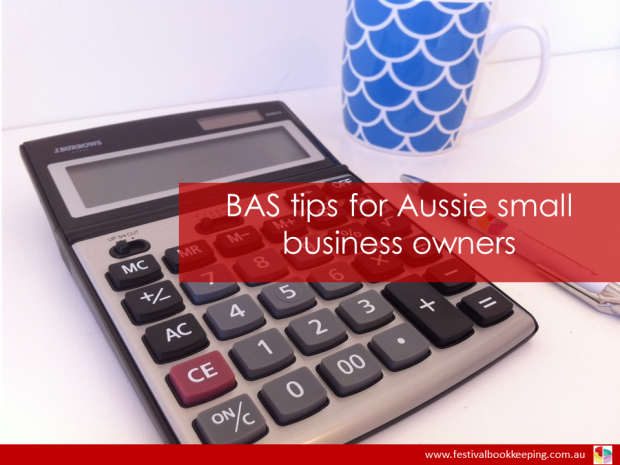
If you are registered for GST in Australia, then you would be familiar with a little old thing called the Business Activity Statement (BAS). No doubt you have also spent many an hour researching the ATO website trying to figure out one thing or another in order to get your BAS completed and lodged in time. Unless, of course, you have a trusted BAS Agent to take this time-consuming task off your hands.
Here are a few tips for preparing and lodging your BAS that will hopefully save you a bit of time and stress.
- If you are due a refund on your next Business Activity Statement, you must make sure any outstanding BAS have been lodged. Why? Because the ATO won’t pay your refund until they know the full story regarding your GST payable or refundable.
- A lot of businesses sell gift vouchers. You may not be aware that you don’t claim GST collected at the time of selling the gift voucher unless the voucher is for a specific product or service. For example, if I run a hairdressing salon and sell gift vouchers than can be redeemed for anything in the salon then I don’t claim the GST on the sale until the recipient of the voucher comes in and uses the voucher. This is one of my favourite pieces of GST legislation I’ve come across. (Okay, don’t judge me).
- Registered for GST and you sell food? It can be difficult to determine whether some types of food you can charge GST on. You can find out the GST status of more than 500 (yes 500) food items via ATO’s detailed food list. Who would have thought? They also have handy flow chart to help you decide.
- You can’t claim the GST paid on purchases if your supplier isn’t registered for GST. It goes beyond receiving a Tax Invoice with an ABN and a GST charge included – this isn’t proof that they are in fact registered. Use the ABN lookup tool to find out whether individual suppliers are registered for GST here: ABN Lookup Tool
- Disposing of a capital asset eg vehicle, factory equipment? This is still a taxable sale, even if you sell to an individual and not another business. The sale will need to be reported at G1 Total Sales on your BAS. Trading in a car is usually considered a taxable sale as well, and will need to be reported on your BAS. More specific information can be found on the ATO website here: GST and Motor Vehicles
Don’t forget that if you outsource your BAS preparation and lodgement to a bookkeeper, they must be a registered BAS Agent. GST is a tax and bookkeepers must have the necessary qualifications, substantial hands-on experience and be continually refreshing their knowledge of GST law.
Are you registered for GST? What do you like/dislike about having to complete your own IAS or BAS?
You might also like these other posts with bookkeeping tips:
- 4 common bookkeeping mistakes (re-visited)
- Top 6 Tips – Keeping on Top of Customer Payments
- Top 5 Bookkeeping Tips



